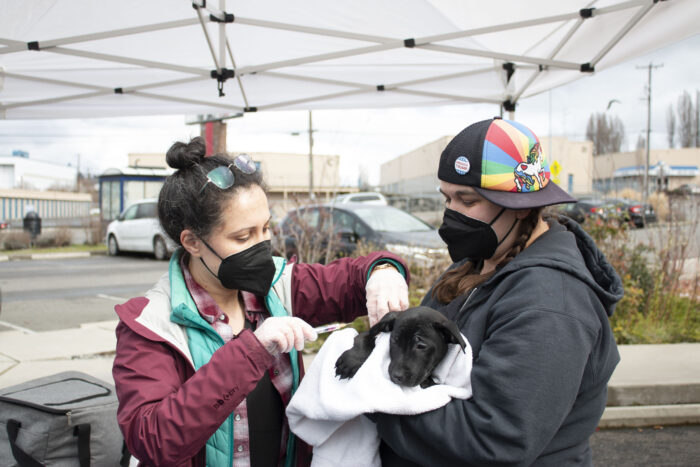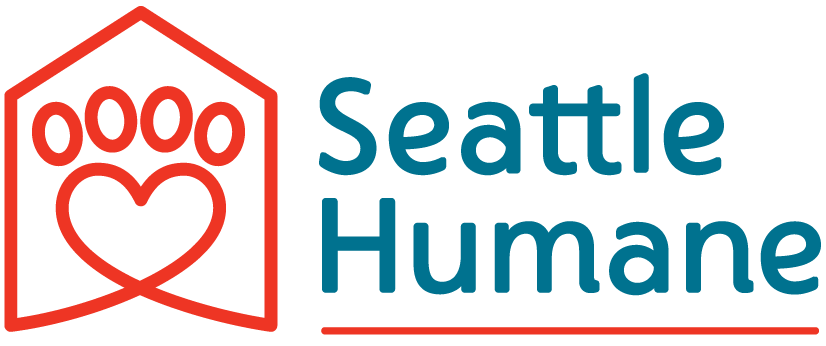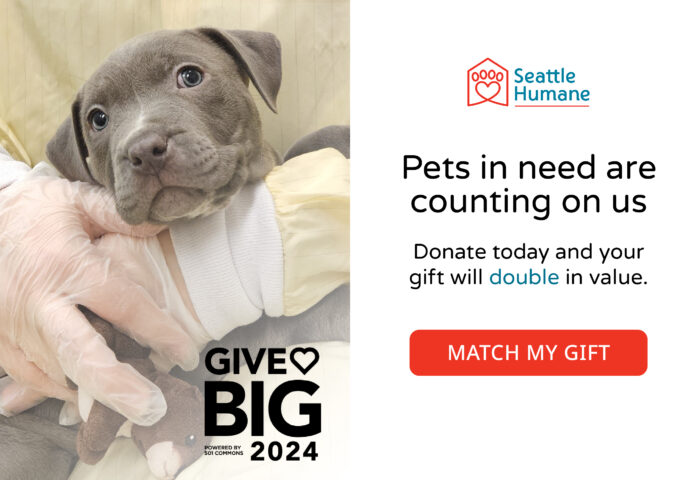
As you may have read in the news, there have been continued reports of an increase in respiratory illness impacting dogs across North America. There currently is no definitive information to support calling this a new virus or way to attribute every new reported case to the same pathogen. However, that doesn’t mean dog owners shouldn’t take a cautious approach to keeping their pets safe from canine infectious respiratory disease (CIRD).
Our advice to pet parents is not to panic. To keep your pet healthy, we recommend staying up to date on vaccines and isolating your pet from others if sick. Having your pet around other groups of dogs is always a calculated risk.
Below are some additional answers to common questions about this illness and steps you can take to protect your pet.
Canine Respiratory Illness FAQ
Have there been any cases reported in Washington state?
Yes. 16 cases have been reported to the Washington State Department of Agriculture (WSDA) since August 2023. The WSDA says that only two of those rise to the level of “atypical” CIRD, and those two dogs are recovering. For more information visit the WSDA’s website.
Are you seeing this respiratory disease affecting dogs at Seattle Humane?
Canine infectious respiratory disease, better known in shelters as kennel cough, is very common in shelter dogs. We have not seen an uptick in kennel cough here at Seattle Humane, nor have we identified any new respiratory diseases in the dogs in our care.
What can I do to keep my dog safe?
Vaccines saves lives! Ensure your pet is up to date on their core vaccinations (DHPP & Rabies) to safeguard them against common respiratory illnesses. The Bordetella, or “kennel cough” vaccine is highly recommended for dogs, and especially ones who spend a lot of time around other canines, whether at the dog park, daycare or in training classes. Your veterinarian should have your pet on a regular vaccination schedule. Check out our Wellness Clinic page to schedule a preventative health care appointment for your pet!
What do I do if my dog gets sick?
Just as we keep ourselves and our children home when unwell, the same goes for our pets. If you suspect your pet is sick or exhibiting respiratory signs, such as coughing or sneezing, isolate them from other pets to prevent the potential spread of illness. Early detection and intervention are key to managing respiratory illness in pets, so be sure to contact your vet ASAP if you think they may be sick. Unvaccinated dogs, puppies and seniors, dogs with pre-existing conditions and flat-faced breeds, such as pugs, boxers and bulldogs, are at a higher risk for illness.
Is it safe to adopt a dog at Seattle Humane right now?
Yes! All of our pets go home with initial vaccinations on board (in some cases additional booster shots may be needed to complete series) and any pet who may be feeling unwell is isolated from the rest of our population until they’re feeling better. If anything comes up, you can bring your pets back to Seattle Humane for quality veterinary care within 30 days of adoption – fees apply for post-adoption exams.
Is Seattle Humane canceling dog training courses?
We are not canceling classes. We do understand if people opt not to attend out of an abundance of caution. Pet owners must provide proof of core vaccinations for all dogs and puppies in our dog training programs, which includes Distemper, Parvovirus, Adenovirus-2, Parainfluenza, DHPP/DA2PP/DHLPP vaccine, at least 7 days before the start of class.
Bordatella is a non-core vaccination but is highly recommended, especially in addressing concerns about canine infectious respiratory disease (CIRD). In most classes, dogs are safely distanced and should not be interacting with each other. Just like with children, we encourage pet parents to keep their dogs at home if they suspect they may be sick and to not attend classes again until their veterinarian has cleared them. Seattle Humane also keeps class sizes small, which helps with safe social distancing. We do encourage avoiding other public spaces or facilities where it is unclear what the vaccine status is of other dogs or what cleaning protocols exist to minimize the spread of transmissible diseases.


Hello,
We fostered the puppy Oats in Tulsa,,Oklahoma prior to his move with Paws In Need Tulsa on February 10, 2024! I can see on your site that he is listed as Adopted. That is fantastic news! I made three videos of Oats (Oates) on TikTok with his brother Hall along with a surprise of their sister Skye who came for a day. Hall and Skye are now in Fridley, MN through Happy Tails Rescue! I would love to share videos with the new owners of Oats!
We started fostering in early 2020 and the Tulsa Paws In Need Rescue placed several of our dogs in Oregon and Washington state rescues!
Thank you.
Martinet11@sbcglobal.net